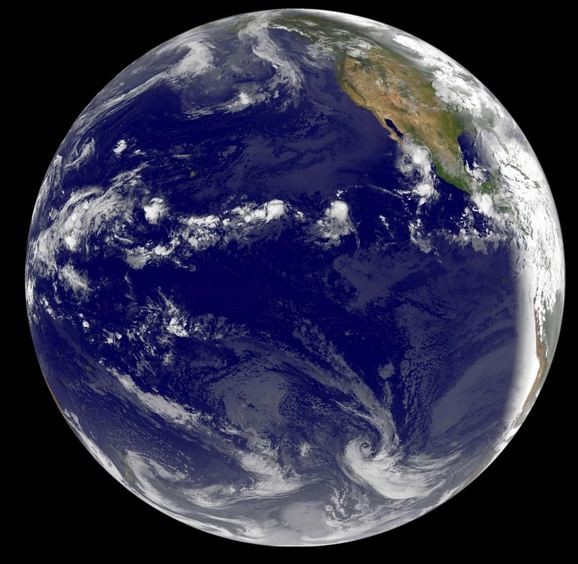Man-made global warming is indeed slowing down but it's because of natural cooling cycles in the Atlantic and Pacific Oceans that will likely be reversed over the next few decades, say climate scientists.
New research reveals this slowing down doesn't mean the planet is cooling down, contrary to what climate change skeptics aver. Neither does it invalidate the overwhelming scientific consensus the Earth is warming and is warmer now than a hundred year ago. The year 2014 was the hottest year on record.
What the research does confirm is the Earth is still warming but at a slower rate over the last 10 to 15 years. Climate scientists describe this phenomenon as a "false pause".
They reiterate the natural climate cycles found in the oceans will be reversed in the next decades and will accelerate global warming.
Scientists studied global temperature readings from 1880 to 2010 and analyzed them using climate models. Their conclusion shows the slowdown is a result of large ocean circulation cycles, otherwise known as "Pacific Decadal (or Multidecadal) Oscillation.
This oscillation is characterized by swings between relatively warm tropical Pacific Ocean temperatures and colder ones. The oscillation is similar to the El Niño-La Niña cycle but last far longer, sometimes into decades, rather than individual years.
The research focuses on a number of sources of natural variation in the Earth's climate system, including the widely known wobble called the
These oscillations from the Pacific and Atlantic Oceans can produce natural warming and cooling cycles affecting the ocean upper layers. These cycles naturally cancel each other out, said scientists. When the north Pacific warms, the north Atlantic cools and vice versa.
Over the last decade, the north Pacific has been cooling down on a larger scale compared to the warming in the north Atlantic that offset global warming.
This only means there is still randomness in the climate system, said Byron Steinman, a professor of environmental and earth sciences from the University of Minnesota, Duluth, in a scientific study published in the journal, Science.
"Our study adds additional weight to the notion that this is part of a short-term excursion that is likely to reverse in the years ahead," said Michael Mann of Penn State University, co-author of the new study in a story in The Huffington Post.
This slowdown in global warming doesn't invalidate the widely regarded finding that continued burning of fossil fuels is increasing the Earth's surface temperature.
The idea that global warming had slowed down or paused has been widely used by climate deniers to undermine the upcoming release of the U.N.'s 5th Intergovernmental Panel on Climate Change report, said The Washington Post.



























